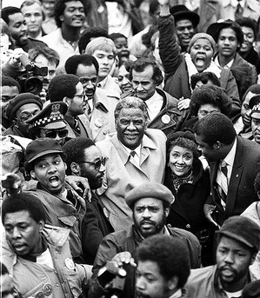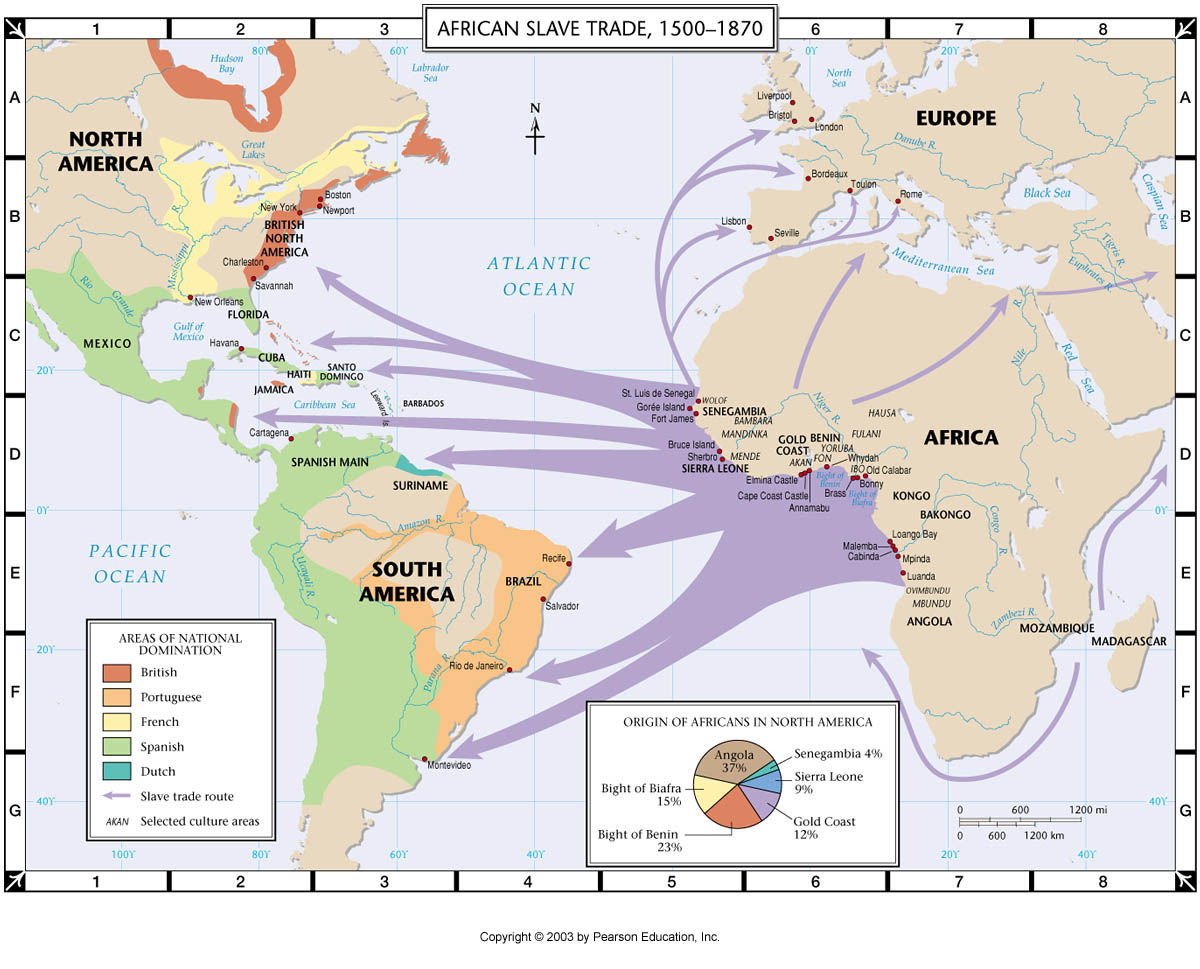Harold Lee Washington (April 15, 1922 – November 25, 1987) was an
American lawyer,
politician who was elected as the 51st
Mayor of Chicago in February 1983. He was the first
Black to serve as Mayor of Chicago, in office from April 29, 1983 until his death on November 25, 1987.
At a party held shortly after his re-election on April 7, 1987, he said to a group of supporters, "In the old days, when you told people in other countries that you were from Chicago, they would say, 'Boom-boom! Rat-a-tat-tat!' Nowadays, they say [crowd joins with him], 'How's Harold?
John Fitzgerald "
Jack"
Kennedy (May 29, 1917 – November 22, 1963), commonly referred to by his initials
JFK, was an American politician who served as the
35th President of the United States from January 1961 until
his assassination in November 1963.
Civil rights
The turbulent end of state-sanctioned racial discrimination was one of the most pressing domestic issues of the 1960s.
Jim Crow segregation was the established law in the
Deep South.
[203] The
Supreme Court of the United States had ruled in 1954 in
Brown v. Board of Education that
racial segregation in public schools was unconstitutional. Many schools, especially in southern states, did not obey the Supreme Court's decision. The Court also prohibited segregation at other public facilities (such as buses, restaurants, theaters, courtrooms, bathrooms, and beaches) but it continued nonetheless.
Kennedy verbally supported
racial integration and civil rights; during the 1960 campaign he telephoned
Coretta Scott King, wife of the Reverend
Martin Luther King, Jr., who had been jailed while trying to integrate a department store lunch counter. Robert Kennedy called Georgia governor
Ernest Vandiver and obtained King's release from prison, which drew additional black support to his brother's candidacy.
In his first State of the Union Address in January 1961, President Kennedy said "The denial of constitutional rights to some of our fellow Americans on account of race - at the ballot box and elsewhere - disturbs the national conscience, and subjects us to the charge of world opinion that our democracy is not equal to the high promise of our heritage."
[205] Kennedy believed the grassroots movement for civil rights would anger many Southern whites and make it more difficult to pass civil rights laws in Congress, which was dominated by conservative Southern Democrats, and he distanced himself from it.
Kennedy also was more concerned with other issues early in his presidency, such as the
Cold War, Bay of Pigs fiasco and the situation in Southeast Asia. As articulated by brother Robert, the administration's early priority was to "keep the president out of this civil rights mess". Many civil rights leaders viewed Kennedy as lukewarm, especially concerning the
Freedom Riders, who organized an integrated public transportation effort in the south, and who were repeatedly met with violence by whites, including law enforcement officers, both federal and state. Kennedy assigned
federal marshals to protect the Freedom Riders as an alternative to using federal troops or uncooperative FBI agents. Robert Kennedy, speaking for the president, urged the Freedom Riders to "get off the buses and leave the matter to peaceful settlement in the courts."
On March 6, 1961, Kennedy signed
Executive Order 10925 which required government contractors to "take affirmative action to ensure that applicants are employed and that employees are treated during employment without regard to their race, creed, color, or national origin."
[208] It established the
President's Committee on Equal Employment Opportunity. Displeased with the pace of Kennedy's addressing the issue of segregation, Martin Luther King, Jr. and his associates produced a document in 1962 calling on the president to follow in the footsteps of
Abraham Lincoln and use an Executive Order to deliver a blow for Civil Rights as a kind of
Second Emancipation Proclamation - Kennedy did not execute the order.
[209]
In September 1962,
James Meredith enrolled at the
University of Mississippi, but was prevented from entering. Attorney General Robert Kennedy responded by sending 400 federal marshals, while President Kennedy reluctantly sent 3,000 troops after the situation on campus turned violent. The
Ole Miss riot of 1962 left two dead and dozens injured, but Meredith did finally enroll in his first class. The instigating subculture at the Old Miss riot and at many other racially ignited events, was the
Ku Klux Klan.
[211] On November 20, 1962, Kennedy signed
Executive Order 11063, prohibiting racial discrimination in federally supported housing or "related facilities".
In early 1963, Kennedy related to Martin Luther King, Jr., about the prospects for civil rights legislation: "If we get into a long fight over this in Congress, it will bottleneck everything else, and we will still get no bill." Civil rights clashes were on the rise that year.
[214] Brother Robert and Ted Sorenson pressed Kennedy to take more initiative on the legislative front.
On June 11, 1963, President Kennedy intervened when Alabama Governor
George Wallace blocked the
doorway to the
University of Alabama to stop two African American students,
Vivian Malone and
James Hood, from attending. Wallace moved aside only after being confronted by Deputy Attorney General
Nicholas Katzenbach and the Alabama
National Guard, which had just been federalized by order of the president. That evening Kennedy gave his famous
civil rights address on national television and radio, launching his initiative for civil rights legislation—to provide equal access to public schools and other facilities, and greater protection of voting rights.
[217]
His proposals became part of the
Civil Rights Act of 1964. The day ended with the murder of a NAACP leader,
Medgar Evers, in front of his home in Mississippi. As the president had predicted, the day after his TV speech, and in reaction to it, House Majority leader Carl Albert called to advise him that his two-year signature effort in Congress to combat poverty in Appalachia (Area Redevelopment Administration) had been defeated, primarily by the votes of Southern Democrats and Republicans.
Earlier, Kennedy had signed the executive order creating the
Presidential Commission on the Status of Women on December 14, 1961.
[220] Former First Lady Eleanor Roosevelt led the commission. The Commission statistics revealed that women were also experiencing discrimination; their final report documenting legal and cultural barriers was issued in October 1963. Further, on June 10, 1963, Kennedy signed the
Equal Pay Act of 1963, a federal law amending the
Fair Labor Standards Act, aimed at abolishing wage disparity based on sex.
[222]
Over a hundred thousand, predominantly African Americans, gathered in Washington for the civil rights
March on Washington for Jobs and Freedom on August 28, 1963. Kennedy feared the March would have a negative effect on the prospects for the civil rights bills in Congress, and declined an invitation to speak. He turned over some of the details of the government's involvement to the Dept. of Justice, which channelled hundreds of thousands of dollars to the six sponsors of the March, including the N.A.A.C.P. and Martin Luther King's
Southern Christian Leadership Conference (SCLC).
To ensure a peaceful demonstration, the organizers and the president personally edited speeches which were inflammatory and agreed the March would be held on a Wednesday and would be over at 4:00 pm. Thousands of troops were placed on standby. Kennedy watched King's speech on TV and was very impressed. The March was considered a "triumph of managed protest", and not one arrest relating to the demonstration occurred. Afterwards, the March leaders accepted an invitation to the White House to meet with Kennedy and photos were taken. Kennedy felt the March was a victory for him as well and bolstered the chances for his civil rights bill.
Nevertheless, the struggle was far from over. Three weeks later,
a bomb exploded on Sunday, September 15 at the 16th Street Baptist Church in Birmingham; by the end of the day, four African American children had died in the explosion and two other children shot to death in the aftermath. Due to this resurgent violence, the civil rights legislation underwent some drastic amendments that critically endangered any prospects for passage of the bill, to the outrage of the president. Kennedy called the congressional leaders to the White House and by the following day the original bill, without the additions, had enough votes to get it out of the House committee.






_-_NARA_-_542015.tif/lossy-page1-220px-Civil_Rights_March_on_Washington,_D.C._(Dr._Martin_Luther_King,_Jr._and_Mathew_Ahmann_in_a_crowd.)_-_NARA_-_542015.tif.jpg)
